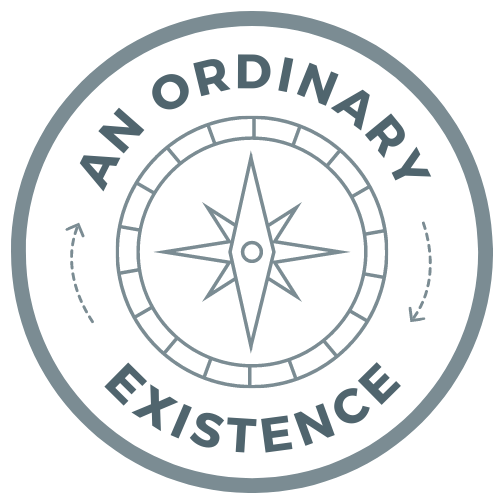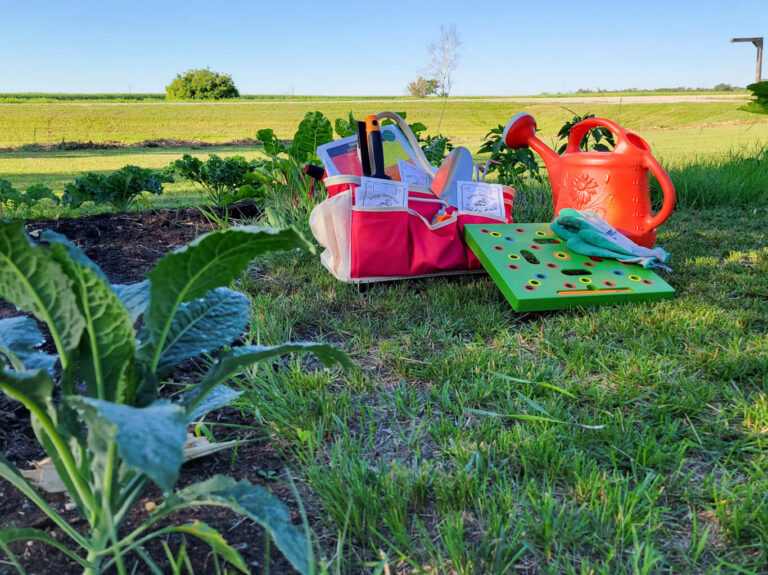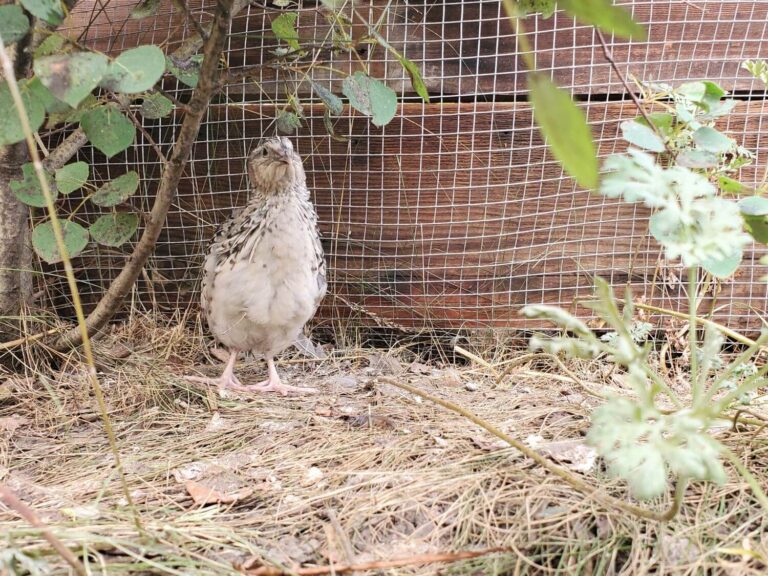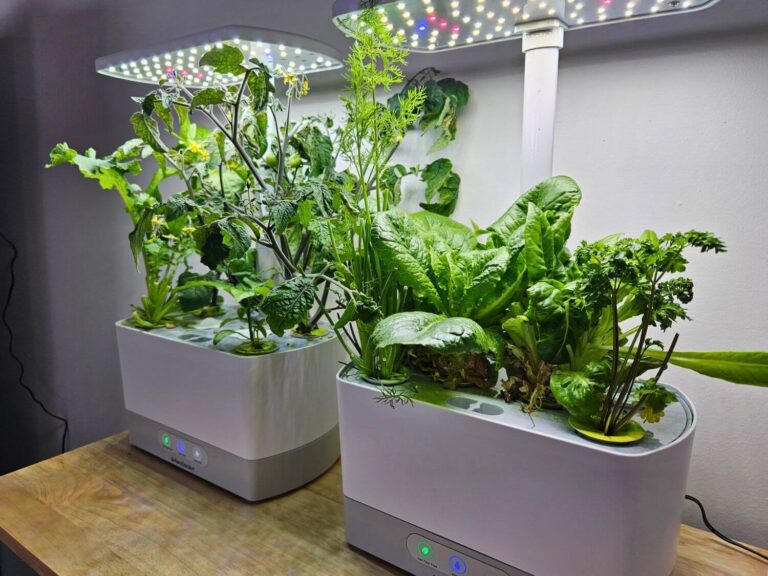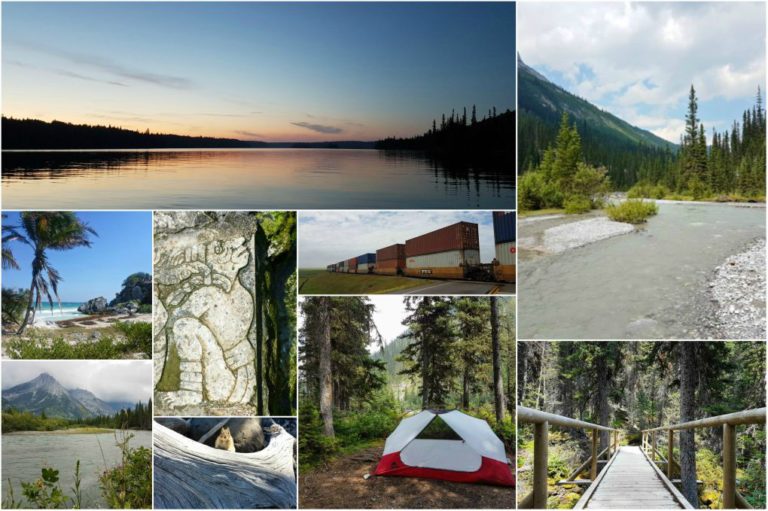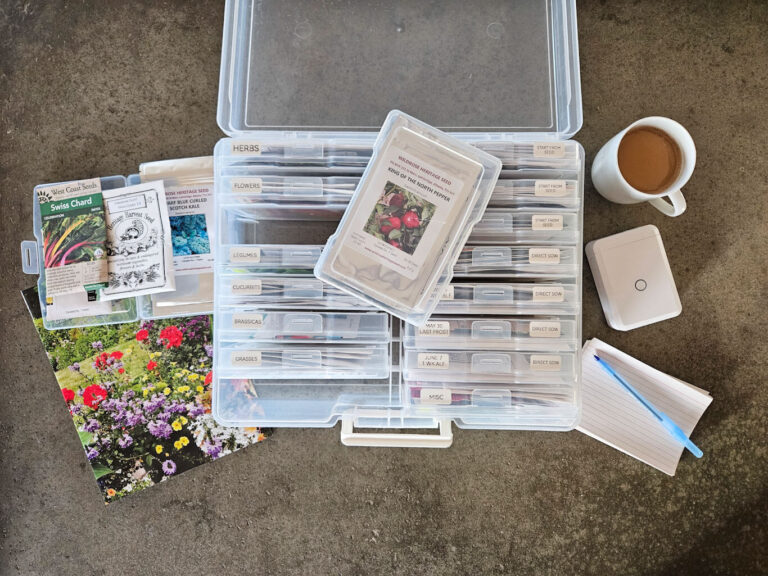70+ SKILLS FOR GREATER SELF-RELIANCE
Our modern world is filled with conveniences, consumer products, and technologies that make our lives incredibly easy. Very few of the skills which would have been commonplace or even essential to survival in the past are necessary today. Instead, we can simply make a purchase, hire someone, or download an app to do things for us.
And that’s great.
This post may include affiliate links. As an Amazon Associate I earn from qualifying purchases. Find more info in my privacy policy.
I’m not here to rag on modernity or claim that we need to return to some romanticized version of yesteryear where we’re all dying of dysentery in our linen bonnets.
BUT I will argue that having the ability to do things for yourself is empowering and fulfills essential human needs like being creative, productive, and independent. It increases self-confidence and provides a certain level of resilience and security.
Striving for greater self-reliance is not about removing oneself from society or rejecting modern living.
Self-reliance is about having the skills, knowledge, and abilities to do things for ourselves, having greater control over the choices we make, and taking responsibility for our needs. It’s about becoming an active producer rather than a passive consumer. And it can be a beautiful thing.
The benefits of living a more self-reliant lifestyle include:
- Having greater control over the food and other products we consume.
- Saving money on items or services you would normally purchase but can grow, make, or do yourself.
- Greater resilience when services or products become unavailable.
- Feeling more capable, self-confident, and empowered.
- Fostering a deeper connection with nature and the true source of the resources you use.
- Reducing dependency on external sources (less trips to the grocery store? Yes, please!)
For me, the draw toward greater self-reliance began way back with my first multi-day backcountry backpacking and kayaking trips. There’s nothing like having to rely completely and totally on yourself for days on end in order to recognize the benefits of self-reliance. Since then, buying an off-grid cabin, running a remote fishing camp, and learning about permaculture and ecological design have only increased my desire (and need) to become more self-reliant.
Self-reliance is not something that will happen overnight, nor is there a one-size-fits-all self-reliant lifestyle you should be pursuing. The skills you choose to learn will vary based on your needs, wants, and interests and should align with your personal goals.
Below is a list of over 70 skills for greater self-reliance. Many of these can be practiced anywhere and at any point in your life, whether you’re in a tiny apartment or living on 140 acres.
Browse through, choose a few to get started on, and begin to reap the benefits of a more self-reliant life.
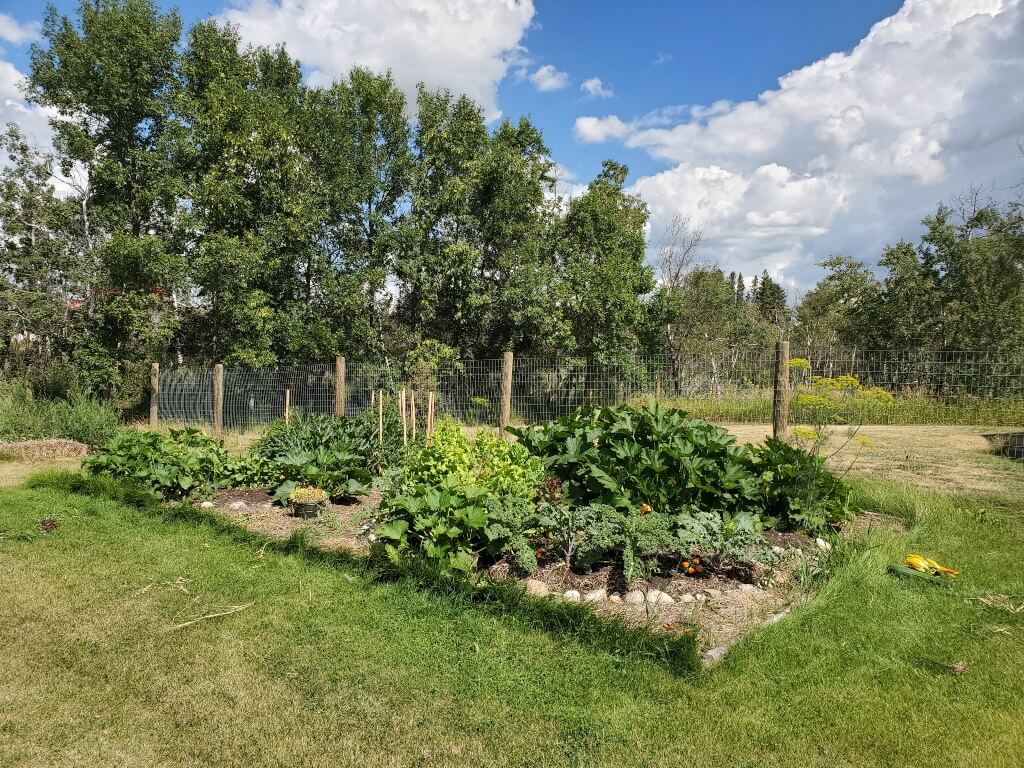
FOOD
Food is such an integral part of our daily lives, it’s no wonder that so many skills on this list revolve around food. Not only is it a basic need, it’s also a source of pleasure, holds deep cultural significance, and it’s extremely satisfying when we are able to feed ourselves and our loved ones.
Food is also one area of our lives that we have lost a lot of control over in our industrialized and consumerist world. Reading ingredient labels or following supply chains will quickly reveal why one might want to become more self-reliant when it comes to food.
Growing, gathering, sourcing, storing, preparing, processing, and cooking food are as much of an art as they are a science and there is an endless amount of information and skill that can be gained in this area.
GARDENING – growing your own food is one of the best ways to gain greater self-reliance. What this looks like will depend on a lot of factors such as space, soil, climate, etc. Consider growing both annual and perennial sources of food. Container gardening, in-ground gardening, no-dig/no-till, raised beds, greenhouse growing, hydroponics, indoor gardening… the possibilities are endless.
SEED STARTING – whether direct sowing seeds in the ground or starting seeds indoors for later transplant, being able to start your own seeds will reduce your dependency on commercial greenhouses and give you greater control over what you grow and when you grow it.
PLANT PROPAGATION – propagation techniques such as division, budding, grafting, and cutting are useful for plants that are difficult to start from seed or that you might want a head start with. Many trees, shrubs, and perennial herbaceous plants such as rhubarb are best started this way.
SEED SAVING – saving seeds from your own garden allows you to create your own seed bank, reduce or eliminate the amount of seed you need to purchase each year, and means you have seeds from varieties that do well in your particular microclimate and soil conditions.
ORGANIC PEST CONTROL – controlling pest pressure through methods such as companion planting, crop rotation, row covers, fencing, attracting natural pest predators, and trap cropping will help in creating an abundant and healthy garden with less external inputs.
COMPOSTING – composting kitchen scraps, animal manures, and yard debris turns waste into a valuable resource for your garden. Vermicomposting and compost teas are other useful strategies in this area.
RAINWATER HARVESTING – reduce or eliminate the need for elaborate irrigation systems or municipal water sources by harvesting the rainwater that naturally falls on your land. Swales, planting on contour, rainwater catchment, rain gardens, and ponds are all effective ways to slow, sink and store water.
GREYWATER RECYCLING – in addition to rainwater, capturing the greywater that otherwise goes down your drain every day is another excellent way to reduce water dependency. This may be as simple as using a bucket to capture water or as elaborate as rerouting your greywater plumbing in a whole-home system.
PLANT IDENTIFICATION – plant ID skills can certainly help you know what you should leave and what you should pull up in the garden, but those skills can also be applied in other places. When you’re out at about, pay attention to what is growing naturally around you. This can give you clues about soil conditions or microclimates, and provide a source of edible and medicinal plants for you to use.
FORAGING – learning to ID plants and fungi will also allow you to forage for food and medicinal plants from the environment around you. Knowing what to look for, when to look for it, and how to pick and process it can mean a source of berries, mushrooms, greens, herbs, and other resources.
ANIMAL HUSBANDRY – there are many reasons to raise domesticated animals. They can provide food, fiber, and fertilizer. And they can fill roles and perform jobs that make our systems more efficient and functional. Animal husbandry is caring for these domestic animals and ensuring their needs are met in terms of shelter, food, water, security, health, and wellbeing.
BASIC VETERINARY CARE – knowing some basics when it comes to treating and caring for animals comes in useful, particularly if you are rural or remote and may not have easy access to a vet. This can allow you to deal with minor injuries and illnesses or address bigger issues until you’re able to recruit help.
DISPATCHING AND BUTCHERING LIVESTOCK – if you plan to have animals, you’ll need to know how to humanely dispatch and process them. Every animal will be a bit different in terms of the methods and techniques used.
BEEKEEPING – keeping bees can supply a source of honey, beeswax, and on-site pollinators for your gardens.
ANIMAL IDENTIFICATION – using scat and tracks to ID animals in your environment is an important skill. It can help you recognize when there are threats to yourself or your livestock, more effectively deal with animal pressure in your garden, and identify potential sources of meat and other resources.
HUNTING – hunting is a great option for a source of meat and hides that doesn’t require the commitment, cost, and hassle of raising your own livestock. Things to learn include, how, when and where to hunt, what species are available to you, and rules and regulations.
SHOOTING & ARCHERY – of course, if you’re going to hunt, having the ability to handle a gun and/or bow and arrow are going to be necessary.
TRAPPING – similar to hunting, trapping is another method of obtaining animal resources from the land around you.
FISHING – fishing is another great source of protein to be gained from the land.
SKINNING, BUTCHERING AND FILLETTING – whether hunting, trapping, fishing, or utilizing your own livestock, you’ll need to know how to handle the animal once harvested. Mastering various techniques in skinning, butchering and filleting will allow you to process and use animal resources more efficiently.
SCRATCH COOKING – cooking from scratch can help save money on processed food, give you greater control over the ingredients you use, and allow you to utilize the food you grow and harvest yourself. Learn basic prep methods, cooking techniques, and traditional dishes and take control of your kitchen.
COOKING OVER AN OPEN FIRE – cooking with a controlled heat source like an oven or cooktop is one thing, but working with an open fire is a whole other beast. With the right cookware, you can roast, boil, grill, bake, and more.
BAKING – quick breads, muffins, biscuits, pies, pastries, cakes, cookies, yeast breads, sourdough… baking opens up a whole new world of DIY foods to try.
MILKING – being able to milk cows, goats, and sheep will provide a source of dairy which can then be processed in various ways.
CHEESEMAKING – from simple farmer’s cheese to aged cheddars, the possibilities are endless when one ventures into the world of cheesemaking.
CHURNING BUTTER – fresh-churned butter is another wonderful resource to be gained from processing your own dairy products. This can be done in a mason jar, a stand mixer, or a good old fashioned butter churn.
MAKING YOGURT AND OTHER CULTURED DAIRY PRODUCTS – yogurt, kefir, sour cream, buttermilk, and cream cheese are all useful products to have available in your kitchen. These are cultured, or fermented, dairy products that are versatile and tasty.
RENDERING ANIMAL FATS – rendering tallow and lard from raw animal fat is an easy process but an invaluable skill to have. The rendered fat can be used in cooking and baking, as well as in making your own salves, balms, candles, soaps, and more.
MAKING YOUR OWN CONDIMENTS – many of the items we’re quick to buy are incredibly easy to make in your own kitchen – think ketchup, pizza sauce, BBQ sauce, mayonnaise, tartar sauce, pesto, salsa, hot sauce, and more. Bonus points if you can use ingredients sourced from your own garden.
FOOD PRESERVATION – Once you’re sourcing your own vegetables, fruits, meat, fish, and other food products, you’ll need a way to store and preserve them. Even if you’re not harvesting your own food, knowing how to preserve will allow you to bulk buy, take advantage of sales, and accept windfalls from others with an over abundance. Some methods to learn include:
- Water bath canning
- Pressure canning
- Fermenting
- Dehydrating
- Freezing
- Curing (smoking and salting)
BUILDING, EQUIPMENT & MAINTENANCE
Anyone can benefit from improving their skills relating to mechanics, household systems, and carpentry. Having the ability to fix and maintain things on your own not only saves you the time and hassle of having to hire someone to do the job, but will also save you money.
If you’re aiming for an off-grid, DIY, homesteading lifestyle, these skills become even more important to learn. Particularly if you’re in a rural or remote location with limited access to resources or services.
WOODWORKING & CARPENTRY – whether repairing your own furniture or building your own home, woodworking and carpentry skills are extremely useful. By learning the basics, you can build your own garden beds, animal shelters, decks, buildings, and so much more.
FENCE BUILDING – fencing is a very important part of any homestead. You may need to keep things in (like livestock in pastures) or keep things out (like deer in your garden). There are many different ways to build fencing and knowing what and how to build is the difference between a fence that constantly needs repairing and one that will last for many years.
FELLING A TREE – being able to safely fell a tree will come in handy when clearing land, removing dangerous or unwanted trees, or harvesting firewood.
ALTERNATIVE BUILDING METHODS – basic skills that allow you to build with milled lumber are great, but there may be cases where building with alternative methods may be more suitable. Think strawbales, cobb, logs, etc.
RIGGING – oftentimes, being self-reliant or living in remote places means you may not have access to equipment when it would be handy for lifting or moving heavy objects. Learning how to effectively use ropes, chains, straps, cables, winches, and pulleys will allow you to do a surprising amount of heavy lifting on your own.
BASIC MECHANICS – if you’re living remote, rural or on any type of homestead, you’ll likely have some type of vehicles and equipment, from ATVs and lawn mowers to trucks and tractors. Being able to perform basic repair and maintenance on these will save you a ton of time and money and keep your equipment in better shape for longer.
USING & MAINTAINING TOOLS – being self-reliant inevitably means you’ll be using tools to perform tasks. Becoming familiar and comfortable with everything from basic hand tools to power tools, chainsaws, axes, guns, and more will give you a lot of versatility. As with your equipment, being able to properly care for, maintain, and sharpen these tools will mean they are more reliable and last longer.
FORGING TOOLS – take your tool skills once step further and learn how to craft and forge your own. This will give you greater control over the type, style, and function of the tool and let you create something that suits your needs.
BASIC PLUMBING & ELECTRICAL – unless you plan on living in a dry cabin with no power, basic plumbing and electrical skills will allow you to install, maintain, and deal with any issues as they arise.
SYSTEMS MAINTENANCE – maintenance of other household systems is also essential. Think septic, wells, heating systems, etc. Know how your systems operate, what routine maintenance needs to be performed, and how to troubleshoot issues that come up.
AROUND THE HOME
Domestic and homemaking skills have largely gone to the wayside in our modern world. We rely so heavily on purchasing items and supplies now that we barely give a thought to making, repairing, or producing our own products.
Being able to make and do things around the home means having greater control over the items you use, tailoring thing to your needs, and saving money on purchased goods.
POTTERY & CERAMICS – pottery skills can provide you with the ability to create many items around your home, from dishes and bowls to cups and mugs to candle holders and garden planters.
BASKET MAKING – baskets have so many uses, from storage and organization to transporting garden harvests and foraging finds. Being able to craft your own from resources you gather from the land means you create the styles, sizes, and shapes that work best for you.
WORKING WITH FIBER AND FABRIC – being able to make and repair your own fiber goods, such as clothing, cloths, towels, blankets, and more is a great skill to have. Some of these include:
- Spinning
- Weaving
- Felting
- Crocheting
- Knitting
- Sewing
TANNING – knowing how to tan an animal hide is another great way to use all parts of the animal and provide you with a resource that can be used for clothing, bags, tool sheaths, and so much more.
SOAP MAKING – making your own soap not only allows you to control what goes into it, but it’s a great way to utilize excess resources, such as tallow, for a useful purpose.
MAKING YOUR OWN CLEANING SUPPLIES – in addition to bar soap, you can make your own cleaning supplies such as laundry soap, dish soap, and general purpose cleaners with little more than vinegar, borax, baking soda, and peroxide.
HAND WASHING & LINE DRYING – removing the dependence on power and plumbing to get laundry done creates another level of self-reliance. Getting the hang of hand washing and line drying are great skills to have. Plus, there’s nothing quite like that fresh, line-dried scent.
HERBALISM – herbalism is a vast and complex topic regarding the therapeutic and medicinal use of plants. Knowledge of using plants as medicine drastically increases self-reliance and can improve your ability to prevent, address, and treat conditions that may otherwise require a trip to the doctor or pharmaceuticals.
MAKING HERBAL REMEDIES – herbal remedies are incredibly handy to have around the home for things such as minor burns, cuts and scrapes, rashes, pain, and dry skin. Lotions, balms, tinctures, and slaves can be made from plant material your source from your own garden and land so you know exactly what’s in it. Increasing your knowledge in herbalism will only increase the types of remedies you’re able to make and the conditions you’re able to treat.
WASTE MANAGEMENT – in the modern world it’s all too easy to throw things in the trash or flush them down a drain and not even consider where, when, and how our waste is dealt with. Being self-reliant means taking responsibility for our own waste. Closing loops and reducing the production of waste is the best way to manage it. Things such as reducing consumption, composting, reusing and repurposing items, and repairing things are great places to start. Recycling human waste through humanure composting is a great way to sewage into a valuable resource.
SURVIVAL, BUSHCRAFT & GENERAL SKILLS
Whether you’re spending a weekend camping, living on a remote property, or simply looking to improve your capabilities in case of “what-if” scenarios, there are a number of skills that are handy to have in your back pocket.
BUILDING A FIRE – building a good fire is as much of a science as it is an art. Learning various methods of starting a fire can come in handy in so many situations and is a necessary survival skill to have for anyone who ventures into the backcountry.
NAVIGATION – many of us seeking a more self-reliant lifestyle do so to gain a deeper connection to nature. That means a lot of time spent outside, whether fishing, hunting, foraging, or just going for a walk in the woods. Knowing how to read a map and compass, pay attention to landmarks, and use a GPS are all necessary skills to have.
KNOT TYING – there are endless scenarios in which knot tying is a useful and necessary skill.
READING WEATHER PATTERNS – we often default to looking up a weather forecast and relying on that for information. But with a little knowledge and making a point of paying attention, there is a lot of information we can gather from the environment around us. Clues like changes in temperature, wind direction, air pressure, and cloud formations can tell us a lot about what’s coming our way and when to seek shelter.
FIRST AID – there may be times when it’s necessary to deal with illness, injury, or a medical emergency without the immediate help of an ambulance or an available hospital. Having basic first aid knowledge will go a long in these situations. I highly recommend taking a wilderness or remote first aid course for skills better suited to situations where isolation is a factor.
SELF-DEFENCE & WILDLIFE SAFETY – being self-reliant may also mean having to deal with your own safety and protection from other people and/or wildlife. Being aware of the risks, knowing effective prevention measures, and knowing how to deal with a dangerous encounter are all great ways to increase your safety.
MINDSET
One of the oft-overlooked aspects of living a more self-reliant lifestyle are the mindset skills necessary to taking responsibility for ourselves. Having lived most of our modern lives in an entirely different context has resulted in thought patterns and expectations that don’t always align with self-reliance.
Thinking more holistically, working through problems on our own before defaulting to quick fixes, and utilizing strategies and resources that aren’t always obvious go a long way in becoming more self-reliant.
TROUBLE-SHOOTING & PROBLEM SOLVING – in today’s society we’re so quick to throw things away, give up, or immediately turn to someone else for help when thing go awry. Having the ability and willingness to take time to analyze the situation, brainstorm potential fixes, and execute some trial-and-error will surprise you at how much you’re capable of fixing on your own.
EMBRACING A LEARNER’S MINDSET – if you go into a self-reliant lifestyle thinking you know it all, you will likely be quickly humbled. If the length of this list gives you any clues, there is an endless amount of knowledge and skill that can be gained. No one will ever learn it all in a lifetime. A willingness to learn, try new things, and admit when we don’t know something is crucial.
ACCEPTING FAILURE – an inevitable part of all the trial and error and learning that comes along with shifting to a more self-reliant life is failure. You will do things wrong. The ability to accept this and try again is the only way to make this type of lifestyle work.
BUDGETING AND FINANCIAL SKILLS – I think this is essential knowledge no matter what lifestyle you live, but having solid financial skills can mean less reliance on banks, credit cards, and loans. Being debt-free and able to manage your finances are especially important if you’re pursing an alternative lifestyle that may be more challenging to manage than a reliable paycheck.
MINIMALISM – learning to live with less, limit your consumption, and do without will make a self-reliant life much easier to manage. If you’re still trying to keep up with the Jones’ and maintain unnecessary levels of consumption, it will be much harder to provide for yourself.
PERMACULTURE OR HOLISTIC DESIGN – our modern lives are extremely compartmentalized and designed to function in a linear fashion. This is incredibly inefficient and creates a lot of waste – wasted time, energy, money, materials, resources, etc. Shifting our mindset and designing all parts of our lives to work together, become cyclical, and close energy and resource loops can not only reduce waste, it can also create sustainable systems that require less external inputs.
PLANNING, ORGANIZATION, AND OBSERVATION – many of us have the tendency to dive in head first and deal with the consequences later. Having the ability to slow down, observe, plan and take in feedback will help ensure the things you do are the most efficient, functional, and practical they can be.
BARTERING AND TRADING – in our money-based economy, barter and trade is not always something we default to. But implementing these strategies can result in local connections, the building of community, greater financial freedom, and less reliance on money.
SOURCING LOCAL SUPPLY CHAINS – it would be incredibly difficult to become completely self-sufficient and never need to source external supplies, materials, and goods. However, relying on global supply chains controlled by large corporations (as we’ve all seen evidence of in recent history) has its downfalls. Rather than defaulting to chain stores, establishing local supply chains creates greater resiliency and transparency. This might include sourcing food and animal feed from local farmers, lumber from local mills, or household goods from local producers.
LIVING SEASONALLY – I mentioned our tendency to live in a linear fashion in our modern world and how wasteful that is. We are expected to keep the same routine, schedule, and productivity levels day in and day out with complete disregard for the natural cycles that are constantly happening around us. Living with greater self-reliance often means working with and respecting the cyclical nature of life. Eating seasonally, performing tasks and activities on nature’s schedule, preparing for seasonal changes, and shifting our productivity based on the season are all necessary. Shifting from a 9-5/365 mindset isn’t easy but will make a self-reliant lifestyle much more efficient and functional.
As you can see, there are an endless number of ways to gain greater self-reliance in your life. Whether you’re looking for things to implement in your urban apartment or moving to an off-grid homestead, I hope you found this list helpful.
